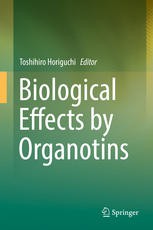Dados pessoais
O CICECO-Instituto de Materiais de Aveiro respeita a sua privacidade, garantindo a confidencialidade dos dados pessoais que partilhe com a instituição por esta via, não recolhendo qualquer informação pessoal sobre si sem o seu consentimento, nos termos exigidos pelo Regulamento Geral de Proteção de Dados (RGPD).
Os dados recolhidos em formulários destinam-se exclusivamente ao processamento de pedidos dos utilizadores e não serão usados para qualquer outro fim, salvaguardando-se sempre a sua confidencialidade, nos termos da proteção conferida pelo referido regulamento.
A recolha e tratamento de dados é da responsabilidade do CICECO e o seu armazenamento é devidamente protegido, podendo apenas ser aceder à informação os trabalhadores do CICECO autorizados no âmbito das suas funções, estando sempre claro nos respetivos formulários de recolha os fins a que se destinam. As restantes questões a considerar nesta matéria serão tratadas pela Universidade de Aveiro de acordo com o regime estabelecido pelo RGPD.
Política de cookies
Os cookies são pequenos ficheiros com informação alfanumérica gravados no disco rígido do seu computador pelo navegador e têm como objetivo melhorar a experiência dos utilizadores e a melhoria de navegação no website.
Os cookies usados são anónimos, não sendo guardada neles qualquer informação dos nossos utilizadores que possibilite a sua identificação pessoal.
As informações técnicas registadas consistem em:
- endereço de IP (Internet Protocol) do visitante;
- tipo de navegador de Internet (browser) utilizado pelo visitante do site e o respetivo sistema operativo usado
- a data e a hora da consulta;
- as páginas visitadas no site e os documentos descarregados
- A informação técnica recolhida é utilizada apenas para fins estatísticos.
Cookies utilizados
Cookies de sessão
Estes cookies são utilizados para registar as preferências do utilizador, tal como a língua em que os websites são apresentados ou para manter as sessões de utilizadores autenticadas, sendo automaticamente apagados quando o navegador é fechado.
Cookies persistentes
Estes cookies guardam informação que é necessária entre sessões. Por exemplo, é guardado um cookie persistente para registar que o utilizador tomou conhecimento da política de cookies e assim não voltar a mostrar a mensagem relativa a esta política, na próxima vez que visitar o website. Este cookie mantém-se no computador até chegar a sua data de expiração ou ser apagado pelo utilizador.
Proteção de dados
A presente política de privacidade abrange o Sistema de Informação da Universidade de Aveiro (SIUA), regendo-se pelo Regulamento Geral de Proteção de Dados (RGPD), Regulamento (UE) n.º 2016/679, de 27 de abril de 2016.
Encarregado da Proteção de Dados
A Universidade de Aveiro tem um Encarregado de Proteção de Dados (EPD) / Data Protection Officer (DPO), que garante a conformidade do tratamento de dados pessoais com a legislação em vigor, estando disponível através do endereço de correio eletrónico epd@ua.pt.



